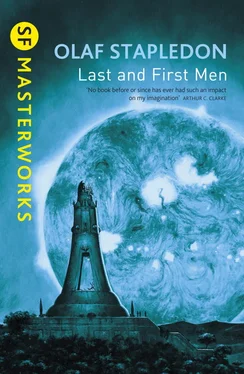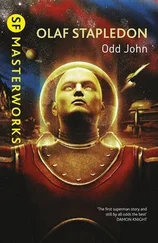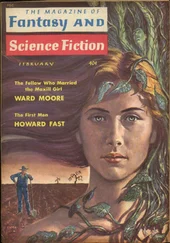Olaf Stapledon - Last and First Men
Здесь есть возможность читать онлайн «Olaf Stapledon - Last and First Men» весь текст электронной книги совершенно бесплатно (целиком полную версию без сокращений). В некоторых случаях можно слушать аудио, скачать через торрент в формате fb2 и присутствует краткое содержание. Город: London, Год выпуска: 1999, ISBN: 1999, Издательство: Orion Publishing Group, Жанр: Фантастика и фэнтези, на английском языке. Описание произведения, (предисловие) а так же отзывы посетителей доступны на портале библиотеки ЛибКат.
- Название:Last and First Men
- Автор:
- Издательство:Orion Publishing Group
- Жанр:
- Год:1999
- Город:London
- ISBN:978-1-857-98806-2
- Рейтинг книги:3 / 5. Голосов: 1
-
Избранное:Добавить в избранное
- Отзывы:
-
Ваша оценка:
- 60
- 1
- 2
- 3
- 4
- 5
Last and First Men: краткое содержание, описание и аннотация
Предлагаем к чтению аннотацию, описание, краткое содержание или предисловие (зависит от того, что написал сам автор книги «Last and First Men»). Если вы не нашли необходимую информацию о книге — напишите в комментариях, мы постараемся отыскать её.
is full of pioneering speculations about evolution, terraforming, genetic engineering and many other subjects.
Last and First Men — читать онлайн бесплатно полную книгу (весь текст) целиком
Ниже представлен текст книги, разбитый по страницам. Система сохранения места последней прочитанной страницы, позволяет с удобством читать онлайн бесплатно книгу «Last and First Men», без необходимости каждый раз заново искать на чём Вы остановились. Поставьте закладку, и сможете в любой момент перейти на страницу, на которой закончили чтение.
Интервал:
Закладка:
Several times during the next three hundred thousand years this process repeated itself. The changeless and terribly efficient superindividual of Mars extirpated its own offspring on the earth, before it could emerge from the chrysalis. And the tragedy might have been repeated indefinitely, but for certain changes that took place in humanity.
The first few centuries after the foundation of the Martian colony had been spent in ceaseless war. But at last, with terribly reduced resources, the Second Men had reconciled themselves to the fact that they must live in the same world with their mysterious enemy. Moreover, constant observation of the Martians began to restore somewhat man’s shattered self-confidence. For during the fifty thousand years before the Martian colony was founded his opinion of himself had been undermined. He had formerly been used to regarding himself as the sun’s ablest child. Then suddenly a stupendous new phenomenon had defeated his intelligence. Slowly he had learned that he was at grips with a determined and versatile rival, and that this rival hailed from a despised planet. Slowly he had been forced to suspect that he himself was outclassed, outshone, by a race whose very physique was incomprehensible to man. But after the Martians had established a permanent colony, human scientists began to discover the real physiological nature of the Martian organism, and were comforted to find that it did not make nonsense of human science. Man also learned that the Martians, though very able in certain spheres, were not really of a high mental type. These discoveries restored human self-confidence. Man settled down to make the best of the situation. Impassable barriers of high-power electric current were devised to keep the Martians out of human territory, and men began patiently to rebuild their ruined home as best they could. At first there was little respite from the crusading zeal of the Martians, but in the second millennium this began to abate, and the two races left one another alone, save for occasional revivals of Martain fervour. Human civilization was at last reconstructed and consolidated, though upon a modest scale. Once more, though interrupted now and again by decades of agony, human beings lived in peace and relative prosperity. Life was somewhat harder than formerly, and the physique of the race was definitely less reliable than of old; but men and women still enjoyed conditions which most nations of the earlier species would have envied. The age of ceaseless personal sacrifice in service of the stricken community had ended at last. Once more a wonderful diversity of untrammelled personalities was put forth. Once more the minds of men and women were devoted without hindrance to the joy of skilled work, and all the subtleties of personal intercourse. Once more the passionate interest in one’s fellows, which had for so long been hushed under the all-dominating public calamity, refreshed and enlarged the mind. Once more there was music, sweet and backward-hearkening towards a golden past. Once more a wealth of literature, and of the visual arts. Once more intellectual exploration into the nature of the physical world and the potentiality of mind. And once more the religious experience, which had for so long been coarsened and obscured by all the violent distractions and inevitable selfdeceptions of war, seemed to be refining itself under the influence of reawakened culture.
In such circumstances the earlier and less sensitive human species might well have prospered indefinitely. Not so the Second Men. For their very refinement of sensibility made them incapable of shunning an everpresent conviction that in spite of all their prosperity they were undermined. Though superficially they seemed to be making a slow but heroic recovery they were at the same time suffering from a still slower and far more profound spiritual decline. Generation succeeded generation. Society became almost perfected, within its limited territory and its limitations of material wealth. The capacities of personality were developed with extreme subtlety and richness. At last the race proposed to itself once more its ancient project of remaking human nature upon a loftier plane. But somehow it had no longer the courage and selfrespect for such work. And so, though there was much talk, nothing was done. Epoch succeeded epoch, and everything human remained apparently the same. Like a twig that has been broken but not broken off, man settled down to retain his life and culture, but could make no progress.
It is almost impossible to describe in a few words the subtle malady of the spirit that was undermining the Second Men. To say that they were suffering from an inferiority complex, would not be wholly false, but it would be a misleading vulgarization of the truth. To say that they had lost faith, both in themselves and in the universe, would be almost as inadequate. Crudely stated, their trouble was that, as a species, they had attempted a certain spiritual feat beyond the scope of their still-primitive flature. Spiritually they had over-reached themselves, broken every muscle (so to speak) and incapacitated themselves for any further effort. For they had determined to see their own racial tragedy as a thing of beauty, and they had failed. It was the obscure sense of this defeat that had poisoned them, for, being in many respects a very noble species, they could not simply turn their backs upon their failure and pursue the old way of life with the accustomed zest and thoroughness.
During the earliest Martian raids, the spiritual leaders of humanity had preached that the disaster must be an occasion for a supreme religious experience. While striving mightily to save their civilization, men must yet (so it was said) learn not merely to endure, but to admire, even the sternest issue. “Thus and thus is the world. Seeing the depth, we shall see also the height, and praise both.” The whole population had accepted this advice. At first they had seemed to succeed. Many noble literary expressions were given forth, which seemed to define and elaborate, and even actually to create in men’s hearts, this supreme experience. But as the centuries passed and the disasters were repeated, men began to fear that their forefathers had deceived themselves. Those remote generations had earnestly longed to feel the racial tragedy as a factor in the cosmic beauty; and at last they had persuaded themselves that this experience had actually befallen them. But their descendants were slowly coming to suspect that no such experience had ever occurred, that it would never occur to any man, and that there was in fact no such cosmic beauty to be experienced. The First Men would probably, in such a situation, have swung violently either into spiritual nihilism, or else into some comforting religious myth. At any rate, they were of too coarse-grained a nature to be ruined by a trouble so impalpable. Not so the Second Men. For they realized all too clearly that they were faced with the supreme crux of existence. And so, age after age the generations clung desperately to the hope that, if only they could endure a little longer, the light would break in on them. Even after the Martian colony had been three times established and destroyed by the orthodox race in Mars, the supreme preoccupation of the human species was with this religious crux. But afterwards, and very gradually, they lost heart. For it was borne in on them that either they themselves were by nature too obtuse to perceive this ultimate excellence of things (an excellence which they had strong reason to believe in intellectually, although they could not actually experience it), or the human race had utterly deceived itself, and the course of cosmic events after all was not significant, but a meaningless rigmarole.
It was this dilemma that poisoned them. Had they been still physically in their prime, they might have found fortitude to accept it, and proceed to the patient exfoliation of such very real excellencies as they were still capable of creating. But they had lost the vitality which alone could perform such acts of spiritual abnegation. All the wealth of personality, all the intricacies of personal relationship, all the complex enterprise of a very great community, all art, all intellectual research, had lost their savour. It is remarkable that a purely religious disaster should have warped even the delight of lovers in one another’s bodies, actually taken the flavour out of food, and drawn a veil between the sun-bather and the sun. But individuals of this species, unlike their predecessors, were so closely integrated, that none of their functions could remain healthy while the highest was disordered. Moreover, the general slight failure of physique, which was the legacy of agelong war, had resulted in a recurrence of those shattering brain disorders which had dogged the earliest races of their species. The very horror of the prospect of racial insanity increased their aberration from reasonableness. Little by little, shocking perversions of desire began to terrify them. Masochistic and sadistic orgies alternated with phases of extravagant and ghastly revelry. Acts of treason against the community, hitherto almost unknown, at last necessitated a strict police system. Local groups organized predatory raids against one another. Nations appeared, and all the phobias that make up nationalism.
Читать дальшеИнтервал:
Закладка:
Похожие книги на «Last and First Men»
Представляем Вашему вниманию похожие книги на «Last and First Men» списком для выбора. Мы отобрали схожую по названию и смыслу литературу в надежде предоставить читателям больше вариантов отыскать новые, интересные, ещё непрочитанные произведения.
Обсуждение, отзывы о книге «Last and First Men» и просто собственные мнения читателей. Оставьте ваши комментарии, напишите, что Вы думаете о произведении, его смысле или главных героях. Укажите что конкретно понравилось, а что нет, и почему Вы так считаете.











